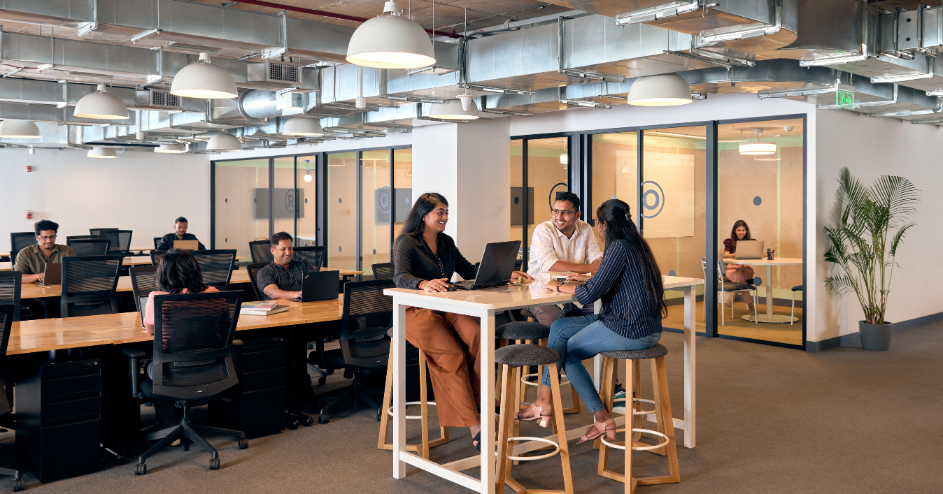WEWORK LABS
Leanafy's Journey: Bootstrapping to $10M ARR with Innovative Supply Chain Management

Bootstrapping your way to $10M ARR: Leanafy’s Ankush Vats tell you how
Tough times often mean having to make tough decisions. For Ankush, this meant having to leave behind a career that was in the intersection of influencers and marketing. As CTO at HYPD, things seemingly were going well. Until they weren’t. The pandemic hit and drove the influencer marketing industry to a standstill. Brands began to grow reluctant to spend money on influencers and as a result, things were looking bleak to say the least.
Ankush was quick to pick up pace and found a gap within e-commerce that could be solved by influencer marketing. Along with Aishwarya and the rest of his team the hunch was strongly validated. The Indian fashion influencer marketing market alone generated revenue of approximately $117.7 million in 2020, with nanoinfluencers being the largest revenue segment, according to Grant Thornton Research.
Influencers also were a key point of discovery at the time, with YouTube enabling creators with about 10,000 subscribers to promote products from major players like Myntra, Flipkart. “E-commerce was fun, but from a technical perspective, it wasn’t pushing me. I wanted to solve something core and deeply technical,” Ankush tells WeWork Labs.
Enter Leanafy
For most ecommerce companies, even before scale, they have to think about supply chain. About 60% of India's MSMEs (micro, small, and medium enterprises) engaging in ecommerce face a giant hurdle in logistics. The supply chain ecosystem remains disjointed with freight forwarders, customs brokers, warehouse providers, and last-mile agents operating in silos. Several startups still operate with manual entries for critical information like tracking the inventory they hold or if an order is fulfilled which can create operational redundancies in their processes. Ankush and his Co-founder Vikrant was determined to fix these issues with Leanafy.
Leanafy’s first major solution standardized invoicing and billing for third-party logistics (3PL) providers, solving a problem that was common yet overlooked. “Paper to digitisation wasn’t the real challenge—it was upgrading outdated digital models and fixing inaccurate data that caused so much backtracking,” Ankush explains.
Today Leanafy has its operations based in the US and Canada, with plans to expand to India soon. In the US, he made a surprising discovery—many supply chain systems were more outdated than those in India. “The general solution there was to throw more people at the problem, often at low wages. I believed the answer was AI and system upgrades, not just adding manpower.”
Making the decision to bootstrap
When trying to build a high-growth startup, oftentimes founders make the choice to raise capital to fund the next part of their growth. For the last three years in operations, Ankush has chosen to bootstrap his journey this far. “When we applied to YC, they told us, ‘You won’t grow fast enough, so you’re not investable.’ That only made me more determined to build sustainably,” Ankush says. The company scaled cautiously: every time revenue per client increased, the team grew.
Ankush draws inspiration from founders like Sridhar Vembu from Zoho, who have built their companies patiently and profitably without external funding. “We decided not to take the traditional route of funding and selling. The first three years were difficult but full of learnings,” he says.
The journey had its crises. Early on, the company lost its first big client, dropping revenue to zero overnight. “We were just five people then—my brother was an intern—and we suddenly had nothing. It takes six months to close a client, and we had to survive that gap,” Ankush recalls. The entire team took a 50% salary cut and pushed through. “Once we closed new clients, we doubled everyone’s salaries. That’s how we’ve built trust.”
Building a place to work
In his professional journey so far, Ankush had learned about the value of being in a physical spaces. “I understood early that the right space changes everything,” he says. In February 2022, Leanafy joined WeWork’s Growth Campus at WTC Pune, and the move proved transformative. They became the first to move into every new campus after that—Raheja Woods, Gera Commerz Zone, and others—unlocking perks like $10,000 in AWS credits, which saved $800 per month and effectively offset their office costs, along with the assistance of Trisha Kar, a member of the community team who made the transitions seamless.
Growth Campus also helped Leanafy to test ideas, launch MVPs, and scale without excessive infrastructure costs. When revenue grew, they moved into a dedicated office at Gera Commerz Zone, enabling faster feature shipping and tighter collaboration.
Looking ahead, Ankush has clear goals: $10M ARR within the next three years and a 100-seater office within two years. “These are achievable if we avoid big mistakes. The pipeline is strong, and I’m optimistic,” he says.
His final word of caution? “Don’t just chase trends like LLMs. Solve niche, high-value problems with core technology. That’s how you build a generational company.”
Related Blogs:

WEWORK LABS
With the Indian startup ecosystem gaining maturity, there are a number of things changing—startups are thinking more global in their ambitions, more companies are taking their companies to the market

WEWORK LABS
India may be home to unicorns and cutting-edge tech, but at its core, it's still a nation of farmers — with over 50% of the population dependent on agriculture.

